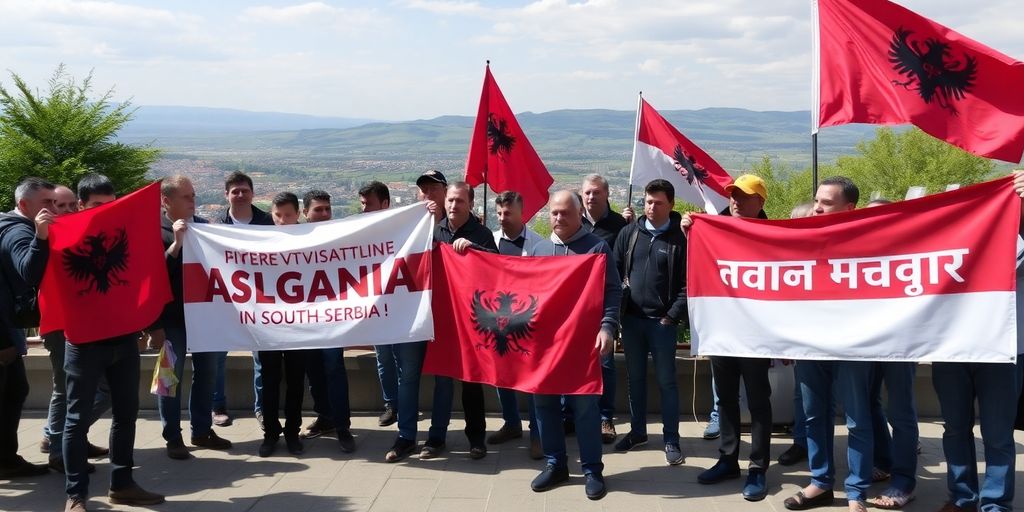Albania has strongly condemned Serbia’s recent practice of marking ethnic Albanians’ addresses as inactive, a move that has sparked significant unrest and protests in the Presevo Valley. This action has been described as a violation of human rights and a breach of minority protections, prompting calls for international intervention.
Key Takeaways
- Albania and Kosovo criticize Serbia’s marking of ethnic Albanians’ addresses as inactive.
- The practice prevents individuals from renewing identity documents and exercising basic rights.
- Protests have erupted in southern Serbia, highlighting the ongoing tensions in the region.
- The European Union has urged Serbia to clarify its actions regarding address passivisation.
Background of the Issue
The issue of address passivisation has emerged as a critical concern for ethnic Albanians living in southern Serbia, particularly in the municipalities of Medvedja, Bujanovac, and Presevo. Thousands of individuals have found their addresses marked as inactive in police databases, which has severe implications for their ability to renew identity documents and access essential services.
The Albanian Foreign Ministry has issued a statement condemning this practice, asserting that it constitutes a violation of human rights and undermines the standards for the protection of minorities. The ministry emphasized that this is not merely a legal issue but one that significantly impacts the daily lives of Albanians in the region.
Reactions from Albania and Kosovo
Albania’s condemnation has been echoed by Kosovo, where President Vjosa Osmani highlighted the historical context of ethnic Albanians facing discrimination. In her address to parliament, she stated that while the 1990s saw Albanians in need of support, the current situation reflects ongoing violations of their rights.
Osmani referred to the passivisation of addresses as a form of ethnic cleansing, a sentiment that has been supported by various international bodies, including the European Parliament and the U.S. Department of State. She criticized the Serbian judiciary for maintaining discriminatory practices and called for a more robust international response to these violations.
Serbian Government’s Stance
As of now, the Serbian government has not publicly responded to the allegations made by Albania and Kosovo. The recent ruling by the Serbian Constitutional Court, which dismissed an appeal from an ethnic Albanian regarding the passivisation of his address, has further fueled tensions. This ruling has been perceived as a continuation of discriminatory practices against ethnic Albanians in the region.
International Response
The European Union has expressed awareness of the situation and has called on Serbia to clarify its actions regarding the passivisation of Albanian addresses. Ana Pisonero, the spokesperson for the European Commission’s enlargement, reiterated that the concerns of ethnic Albanians would be addressed in the ongoing enlargement process for Serbia’s EU membership.
The EU’s involvement highlights the international community’s interest in ensuring the protection of minority rights in the region, as well as the need for Serbia to adhere to international standards in its treatment of ethnic minorities.
Conclusion
The issue of address passivisation in southern Serbia remains a contentious topic, with significant implications for the rights and freedoms of ethnic Albanians. As Albania and Kosovo continue to advocate for the protection of these rights, the international community’s response will be crucial in addressing the ongoing tensions and ensuring that minority rights are upheld in the region.

